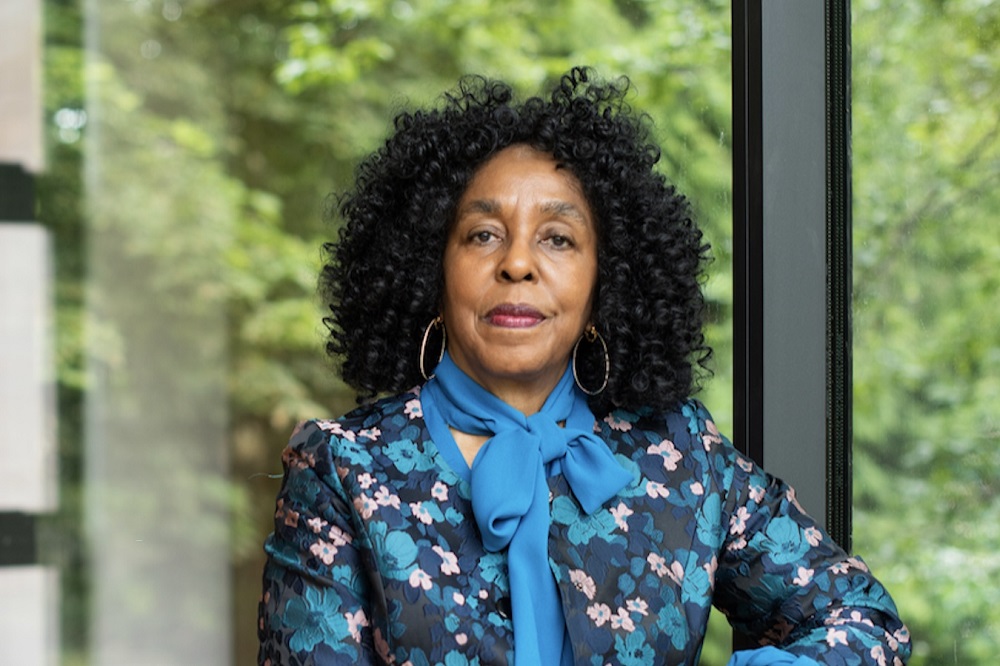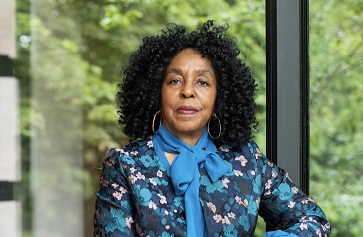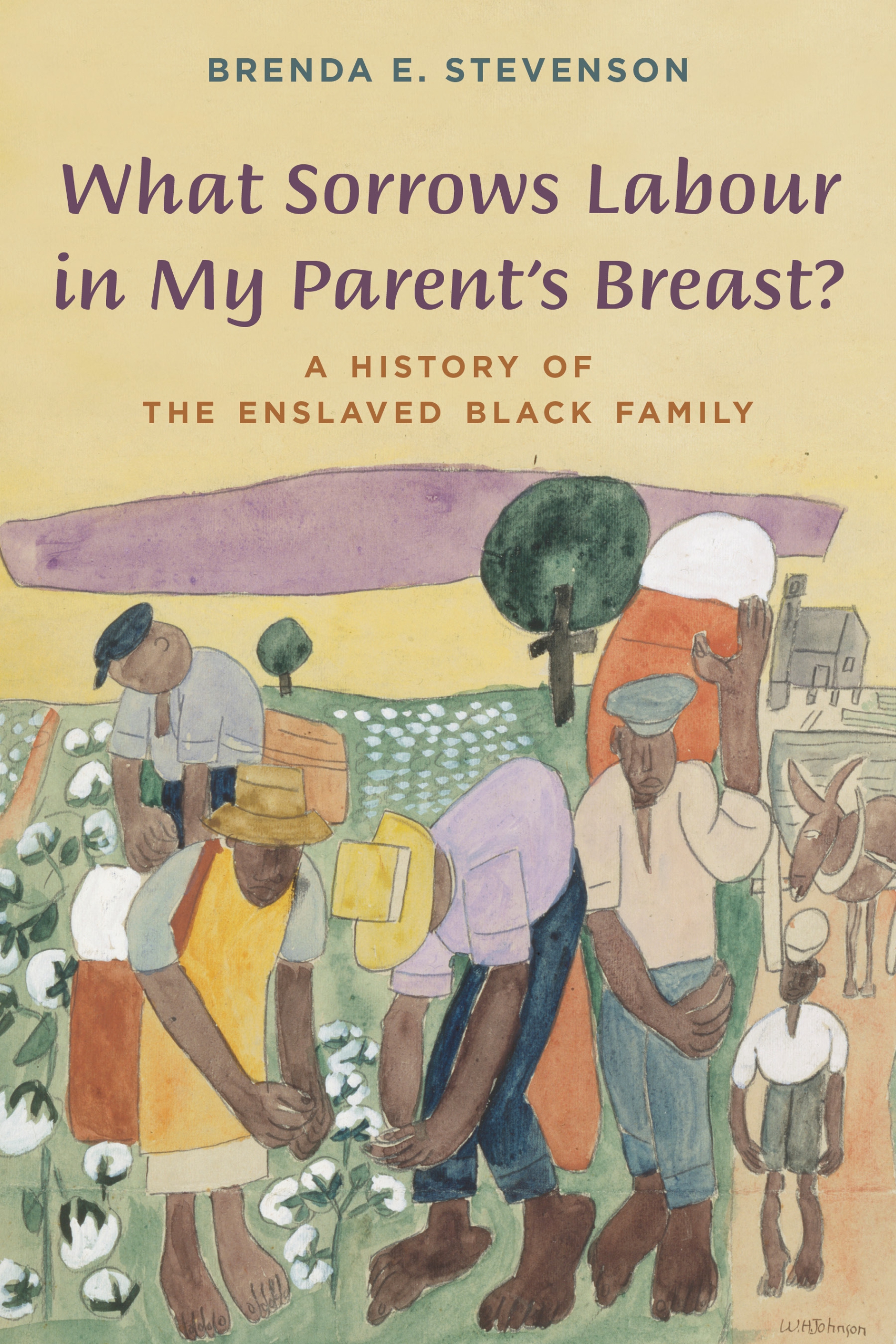UCLA’s Brenda Stevenson on reclaiming the history of the Black family
The historian and author discusses her new book, ‘What Sorrows Labour in My Parent’s Breast?’

Courtesy of Brenda Stevenson
“The more we know and understand about people and experiences in the nation, the better we can shape solutions to contemporary and future problems.” Stevenson said.
Jonathan Riggs | April 14, 2023
At first, Brenda Stevenson set out to pen a short history of the enslaved Black family. But the breadth — and the beauty — of the voices she uncovered led her to expand her focus.
And so she wrote “What Sorrows Labour in My Parent’s Breast? A History of the Enslaved Black Family” to provide a definitive study on the topic and to address how the institution of the African American family has been distorted and misrepresented through stereotypes.
“The book is especially timely because our nation still struggles to recognize and respect Black humanity,” Stevenson said. “Knowing the history of the Black family — its similarities to other families and the historical, and logical, reasons why some differences persist — provides another opportunity to understand that Black people are human and humane and should be treated as such.”
Ahead of its publication this month, Stevenson, the Nickoll Family Professor of History at UCLA and the inaugural Hillary Rodham Clinton Professor of Women’s History at Oxford University, discussed her sixth book.
How does this latest work relate to your earlier books and research?
It is both a culmination of my earlier works, as well as something new in scope, temporally and geographically. It begins in West and western Central Africa in the 16th century and ends after the Civil War in the late 19th-century United States. It considers the earliest of enslaved African people’s lives, not only in the British mainland colonies but also in the French, Spanish and Dutch colonies of North America. As such, this work creates a broad, introductory context for Black family life in which my other works can be placed, but also documents, definitively, its essential nature to Black people, regardless of social, economic, legal and cultural circumstances.
What do you hope readers will take away?
The absolutely essential nature — or natures — of the Black family across time and place, both to Black people and to our larger society. Black people sacrifice tremendously to attain and maintain familial relations. The family unit has meant the survival of Black people, even under the harshest of societal and personal conditions. The contributions that Black people have made to the nation — as captives, workers, thinkers, inventors and artists — have all been possible because of the Black family.
Enslavement did not destroy the Black family. Black people survived and survive today because of families, regardless of how these families may differ structurally and sometimes functionally from the families of other people in our society. Black families matter profoundly. The voices of the Black people who speak out in this book about their experiences of family life establish this truth.
What surprised you while researching and writing this book?
I came across so many wonderful stories — some tragic, some affirming, others just outright interesting — but none intrigued me more than that which is the subject of the book’s conclusion. It is the story of a man, enslaved and then freed during general emancipation, who kept telling anyone who would listen the story of his ancestors who arrived in North America with Hernando de Soto in the 16th century. It is a remarkable story that speaks to the many twists and turns of Black family life in U.S. history — and how Black families are foundational to the nation’s history.
What does Phillis Wheatley, whose poetry provided the book’s title, mean to you?
Phillis Wheatley was a wondrous girl and woman. She is the first enslaved Black female in what becomes the U.S. to become a public icon and a public intellectual. How could she have existed — this Senegambia child captive living and working in a Boston household who managed, or was forced, to learn and eventually take or make as her own her captors’ academic world? She startled the Western world with her abilities. But Phillis Wheatley was much more than her poetry and her captivity. She was a female, friend, wife, mother, traveler, Christian and keen observer of the world around her. I have always been drawn to her life story, her determination to find and have family regardless of her enslavement, and the horrors that status imposed and how she dealt with them. The title honors her remembrance of her African family and the profound losses and pain slavery rendered on her kin and so many millions of others.
What is your perspective on the growing resistance across the U.S. to students learning historical truths about slavery and race?
As a historian, I feel that it is always important for students and all people to learn history fully. To not do so hinders our ability to act responsibly as citizens of the nation and the world. The divisions and inequities that we see so clearly in our society today are in part due to our general lack of knowledge of our histories. The more we know and understand about people and experiences in the nation, the better we can shape solutions to contemporary and future problems. Knowing history more fully is an imperative for society’s positive evolution.
What is your next project?
I will be writing a biography of Maria Stewart, the first woman in the U.S. to give a series of public political speeches. She was Black and born free in Hartford, Connecticut, in 1803. Stewart gave four public lectures in Boston between 1831 and 1833, as well as published a manifesto, and was a prodigious activist for Black freedom and equality, women’s rights and educational access. I am also just finishing an edition of the textbook “Through Women’s Eyes” with my UCLA emeriti colleague Ellen DuBois and completing a collection of essays with Sharla Fett of Occidental College based on conferences we convened at UCLA’s Clark Library on the year 1619. I’m keeping busy!
This article originally appeared at UCLA Newsroom. For more of Our Stories at the College, click here.




